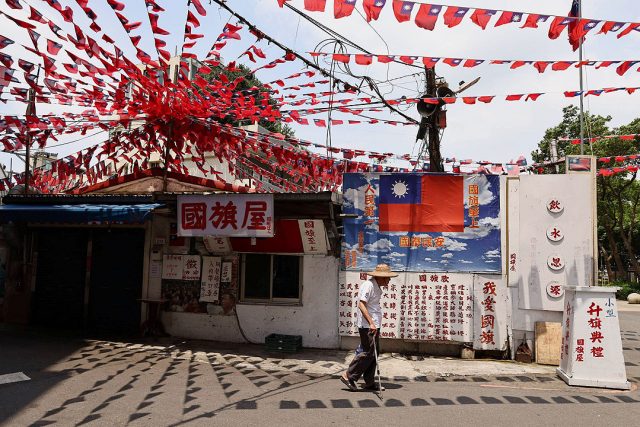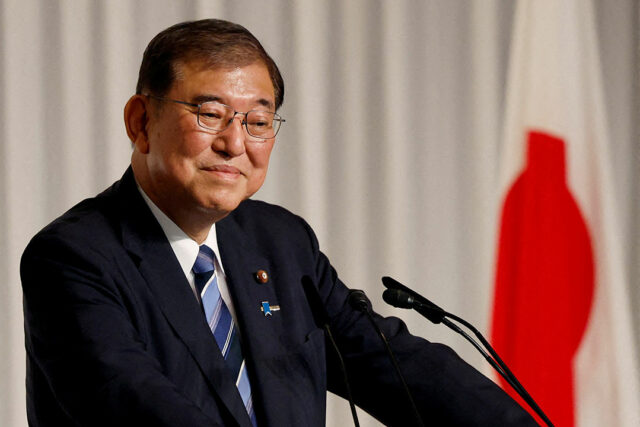BEIRUT — Israel’s widely expected ground invasion of Lebanon appeared to be getting underway early on Tuesday as its military said troops had begun “limited” raids against Hezbollah targets in the border area.
The military said in a statement that it had begun “limited, localized, and targeted ground raids based on precise intelligence” against Hezbollah in southern Lebanon villages close to the border that posed “an immediate threat to Israeli communities in northern Israel”.
It said the air force and artillery were supporting the ground forces with “precise strikes.”
Local residents in the Lebanese border town of Aita al-Shaab reported heavy shelling and the sound of helicopters and drones overhead. Flares were repeatedly launched over the Lebanese border town of Rmeish, lighting up the night sky.
On Monday, Israeli Defense Minister Yoav Gallant had told local council heads in northern Israel that the next phase of the war along Lebanon’s southern border would begin soon, and would support the aim of bringing home Israelis who have fled Hezbollah rockets during nearly a year of border warfare.
The ground invasion represents an escalating conflict in the Middle East between Israel and Iran-backed militants, sparked by an assault on Israel by Palestinian militant group Hamas on Oct. 7, 2023, that now threatens to suck in the US and Iran.
An Israeli strike in Lebanon early on Tuesday targeted Mounir Maqdah, commander of the Lebanese branch of the Palestinian Fatah movement’s military wing, the Al-Aqsa Martyrs Brigade, according to two Palestinian security officials.
His fate was unknown.
The strike hit a building in the crowded Ain al-Hilweh Palestinian refugee camp near the southern city of Sidon, the sources said. It marked the first strike on the camp, Lebanon’s largest Palestinian camp, since cross-border hostilities between Hezbollah and Israel broke out nearly a year ago.
In Syria, three civilians were killed and nine others injured in an Israeli airstrike on the capital Damascus, Syrian state media said on Tuesday citing a military source. Israel’s military said it does not comment on foreign media reports.
Israel has been carrying out strikes against Iran-linked targets in Syria for years but has ramped up raids since the Hamas attack on Israel’s southern territory on Oct. 7, 2023.
Hamas killed 1,200 people and took about 250 hostage in its assault on Israel, according to Israeli tallies. Israel in response launched a massive assault on Hamas in Gaza, reducing most of the Palestinian territory to rubble, displacing most of its 2.3 million people and killing more than 41,300 Palestinians, according to the Gaza health ministry.
STRIKES ON BEIRUT
Israel’s ground invasion into Lebanon follows its deadly detonation of booby-trapped Hezbollah pagers, two weeks of airstrikes, and its killing on Friday of Hezbollah head Hassan Nasrallah, which dealt the group one of the heaviest blows in decades.
The intensive air strikes have eliminated several Hezbollah commanders but also killed about 1,000 civilians and forced one million to flee their homes, according to the Lebanese government.
Overnight, strikes hit Beirut’s southern suburbs, a security source said. A Reuters reporter witnessed a flash of light and a series of loud blasts about an hour after the Israeli military warned residents to evacuate areas near buildings it said contained Hezbollah infrastructure south of the Lebanese capital.
In the past 24 hours, at least 95 people had been killed and 172 wounded in Israeli strikes on Lebanon’s southern regions, the eastern Bekaa Valley, and Beirut, Lebanon’s health ministry said early on Tuesday.
Hezbollah’s deputy leader Naim Qassem, in a first public speech on Monday since Nasrallah’s death, said that “the resistance forces are ready for a ground engagement.”
He said Hezbollah had continued to fire rockets as deep as 150 km (93 miles) into Israeli territory.
“We know that the battle may be long. We will win as we won in the liberation of 2006,” he said, referring to the last big conflict between the two foes.
Late on Monday, Lebanese troops pulled back about five kilometers (3 miles) from positions along Lebanon’s southern border with Israel, a Lebanese security source told Reuters. A Lebanese army spokesperson did not confirm or deny the movement.
Lebanon’s army has historically stayed on the sidelines of major conflicts with Israel, and in the last year of hostilities has not fired on the Israeli military.
The White House and the US State department did not immediately respond to a request for comment on Israel’s ground operations in Lebanon.
But on Monday, US President Joseph R. Biden had called for a ceasefire.
“I’m more worried than you might know and I’m comfortable with them stopping,” Mr. Biden told reporters when asked if he was comfortable with Israeli plans for a cross-border incursion. “We should have a ceasefire now.”
Israel last week rejected a proposal by the US and France calling for a 21-day ceasefire on the Lebanon border to give time for a diplomatic settlement that would allow displaced civilians on both sides to return home. — Reuters










